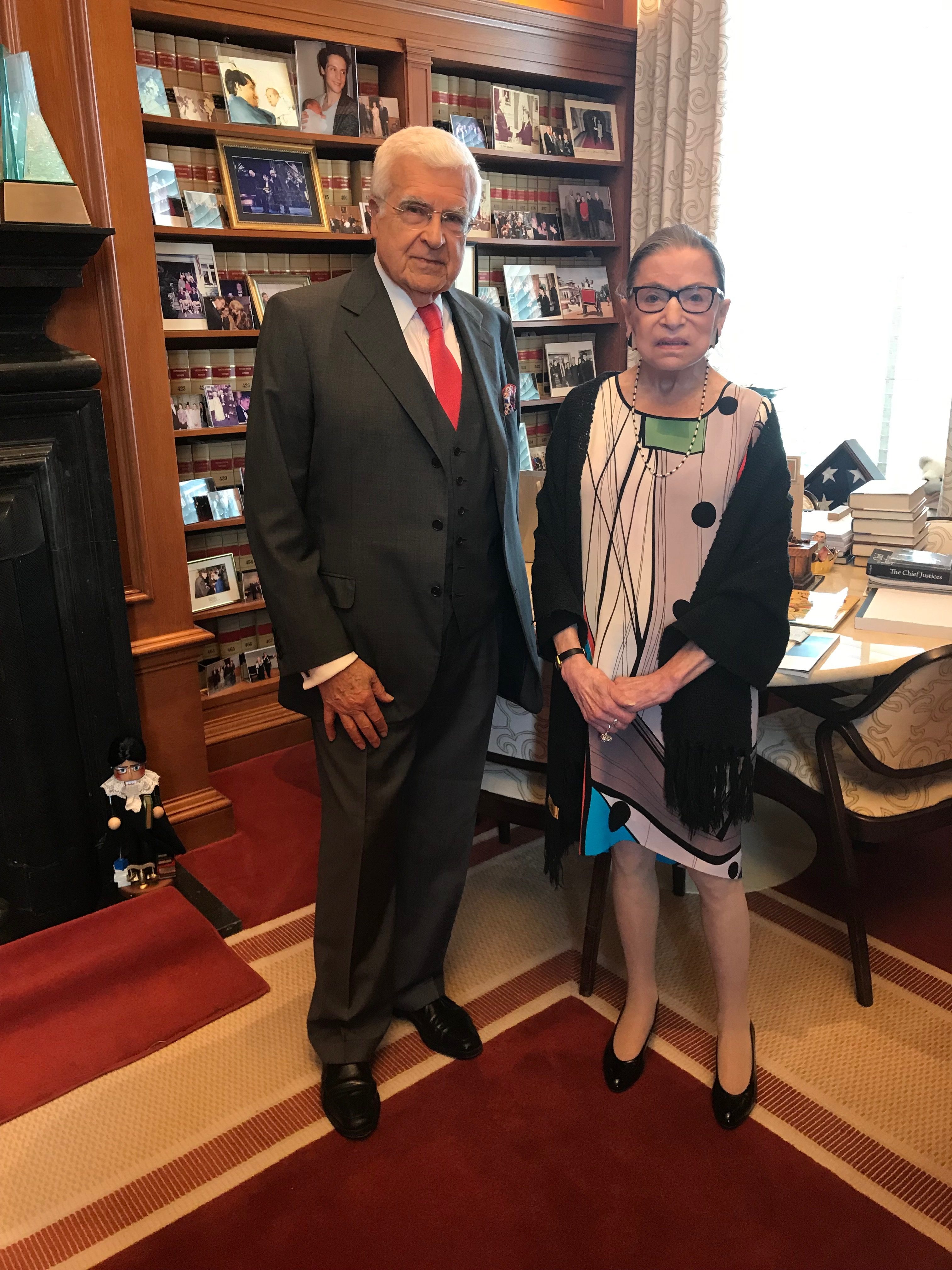Justice Ruth Bader Ginsburg Discussion, part 2 – Special Podcast Series: Wright & Miller’s Federal Practice & Procedure Marks 50 Years of Publication, episode 5

Justice Ruth Bader Ginsburg has served on the bench for nearly forty years. She was appointed to the U.S. Supreme Court in 1993 after serving on the U.S. Court of Appeals District of Columbia Circuit. Prior to that, she was a professor of law at both Rutgers Law School and Columbia Law School teaching civil procedure, and a general counsel for the American Civil Liberties Union. As a practicing attorney, she argued and wrote briefs for several landmark cases before the Court, including Reed v. Reed, Frontiero v. Richardson, Weinberger v. Wiesenfeld, Craig v. Boren, and Duren v. Missouri.
Episode 5 of our special podcast series marking the 50th anniversary of the first publication of Wright & Miller’s Federal Practice & Procedure continues the discussion between Prof. Arthur Miller, founding author of the treatise, and Justice Ginsburg, including her thoughts on what it’s like to argue a case before the High Court with her perspectives and experience on both sides of the bench.
Professor Miller and Justice Ginsburg discuss the Justice’s views on what makes for an effective argument before the Court, how lawyers can write more effective briefs, and how Justice Ginsburg feels about the recent RBG documentary on her life.
In the previous episode –the first of the two-part discussion — Professor Miller and Justice Ginsburg discussed their overlapping journeys in the law, first as classmates at Harvard Law School, as attorneys arguing before the Supreme Court, and in their current roles, respectively, as law school professor and supreme court justice.
Federal Practice & Procedure is one of the most respected and enduring legal treatises. The treatise has been cited by federal courts an astounding 90,000 times, according to Westlaw estimates, and has been cited by the U.S. Supreme Court every year since 1973.Thomson Reuters is presenting this special podcast series throughout 2019 featuring Professor Miller with leading legal scholars and thought leaders as they explore the issues and challenges facing attorneys practicing before the federal judiciary.
To listen to the podcast, click on the built-in audio player below (to download and listen later, right-click here)